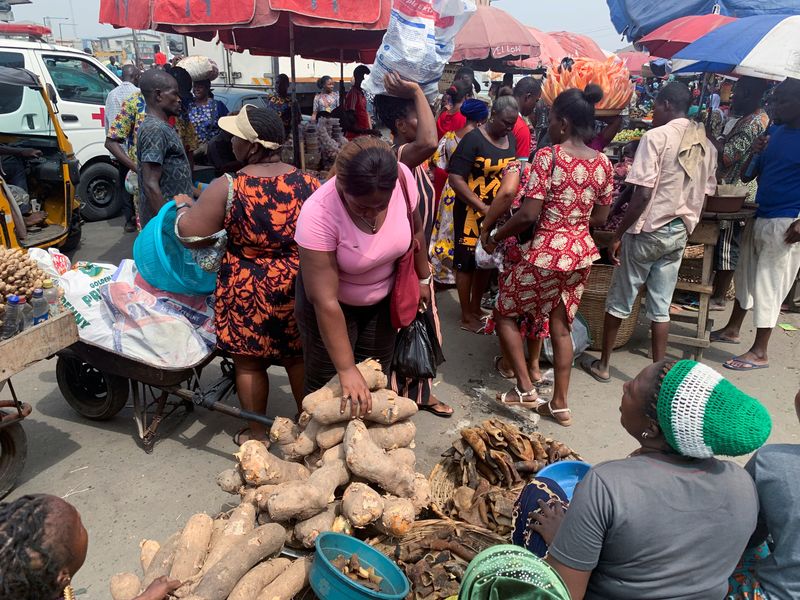ABUJA (Reuters) -Nigeria plans to rebase its gross domestic product and inflation data by the end of the month to capture changes in certain sectors of the economy and to reflect current consumption patterns, its statistics office said on Monday.
The National Bureau of Statistics said some sectors of Nigeria's economy have experienced significant growth since the last GDP rebasing in 2014 and now require proper representation.
The marine economy, arts, culture and tourism, information and communication technology and e-commerce activities were among those sectors, it said.
While it is too soon to say what the impact of the rebasing might be, economists speculated that Nigeria might want to present a more compelling investment case to lure foreign funds that fled in the wake of its recent crisis.
The rebasing in 2014 positioned Nigeria as Africa's largest economy.
President Bola Tinubu embarked on Nigeria's boldest reforms after he took office in 2023 by scrapping a decades-old petrol subsidy and devaluing the naira currency in an effort to jump-start growth.
Tinubu's reforms have worsened already high inflation and escalated a cost of living crisis in Africa's most populous nation.
The statistics office said consumption pattern in Nigeria have changed significantly since the last inflation rebasing in 2009. It plans to use 2024 as the new base year for inflation.

Nigeria's inflation rate rose to 34.80% in December from 34.60% in November, the statistics office said last week, noting that food and non-alcoholic beverages contributed the most to price pressures.
Tinubu said in a budget speech in December that he expected inflation to fall to 15% this year, helped by lower imports of petroleum products.